Dear fans of Gemini Skies eggs,
First this news—Sept 1 will bring an increase in our egg pricing to $4/dozen, which still represents a wonderful value for our product.
Next-- Thank you for loving our product. Our delicious (and nutritious!) eggs are from happy hens, living interesting hen lives. They range, (as the hawks allow) and pasture (in movable pens that let a chicken be a chicken, but keep them safe if predators are nearby.) They eat lovely weed and grass salads on our untreated land. (Fun fact: Hens are not vegetarian! They love bugs and worms, for instance). Our girlies breathe fresh coastal air, and are supplemented with 100% organic poultry grain from Vermont. (Another fun fact: Dandelions and Dandelion greens are one of the most nutritious 'weeds' available, anywhere. Their list of attributes is nearly endless).
We thought you would enjoy this article from Mother Earth News on *why* pastured and free -range eggs are better for you, and better for the hens.
From Mother Earth News, 2007
“Most of the eggs currently sold in supermarkets are nutritionally inferior to eggs produced by hens raised on pasture. That’s the conclusion we have reached following completion of the 2007 Mother Earth News egg testing project. Our testing has found that, compared to official U.S. Department of Agriculture (USDA) nutrient data for commercial eggs, eggs from hens raised on pasture may contain:
• 1/3 less cholesterol• 1/4 less saturated fat• 2/3 more vitamin A• 2 times more omega-3 fatty acids• 3 times more vitamin E• 7 times more beta carotene
These amazing results come from 14 flocks around the country that range freely on pasture or are housed in moveable pens that are rotated frequently to maximize access to fresh pasture and protect the birds from predators. We had six eggs from each of the 14 pastured flocks tested by an accredited laboratory in Portland, Ore. The chart at the end of this article shows the average nutrient content of the samples, compared with the official egg nutrient data from the USDA for “conventional” (i.e. from confined hens) eggs. The chart lists the individual results from each flock.
The 2007 results are similar to those from 2005, when we tested eggs from four flocks all managed as truly free range. But our tests are not the first to show that pastured eggs are more nutritious — see “Mounting Evidence” below for a summary of six studies that all indicated that pastured eggs are richer in nutrients than typical supermarket eggs.
We think these dramatically differing nutrient levels are most likely the result of the different diets of birds that produce these two types of eggs. True free-range birds eat a chicken’s natural diet — all kinds of seeds, green plants, insects and worms, usually along with grain or laying mash. Factory farm birds never even see the outdoors, let alone get to forage for their natural diet. Instead they are fed the cheapest possible mixture of corn, soy and/or cottonseed meals, with all kinds of additives — see “The Caged Hen’s Diet” below.
The conventional egg industry wants very much to deny that free-range/pastured eggs are better than eggs from birds kept in crowded, inhumane indoor conditions. A statement on the American Egg Board’s Web site says “True free-range eggs are those produced by hens raised outdoors or that have daily access to the outdoors.”
You can find the entire article here:
http://www.motherearthnews.com/Real-Food/2007-10-01/Tests-Reveal-Healthier-Eggs.aspx?page=2
Happy (and healthy) eating!


































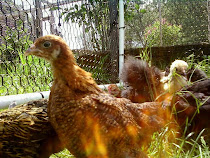




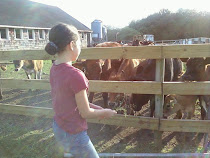




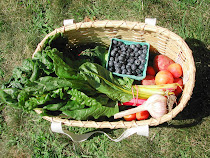



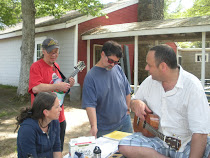





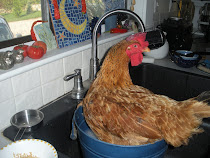


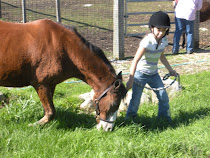





0 Comments:
Post a Comment